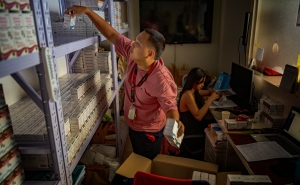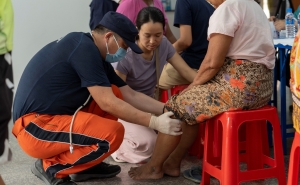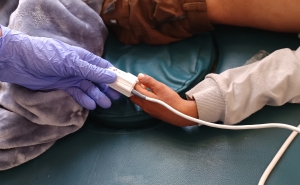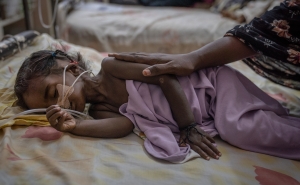Anemia in women — an intractable problem that requires innovative solutions
New Commentary by Parul Christian in Nature Medicine
In a new commentary, Parul Christian, PhD, a professor in the Department of International Health at the Johns Hopkins Bloomberg School of Public Health, calls for immediate, large-scale action to mitigate the effects of anemia which disproportionally affects women in lower- and middle-income countries, at great costs to individuals, families, and nations.
The commentary was published October 12, 2021, in the News and Views section of Nature Medicine.
Anemia, defined as low hemoglobin concentration, continues to impact millions of women in LMICs, has been linked to reduced economic productivity. During pregnancy it can be detrimental to the health of the mother and newborn, leading to a range of poor birth outcomes and maternal death. Christian points to gender inequality, lack of political will and programmatic failures, including poor supply and adherence to iron-folic acid supplements recommended by WHO, as causes for the slow progress in reducing global anemia.
With new high-quality spatial data, such as those reported in the same issue of Nature Medicine,1 Christian believes there’s a viable solution to the global maternal anemia problem. These data can reveal subnational disparities, making it possible to use a targeted life-course tiered approach of prevention. Programs could focus on populations in need and customize the services delivered, which could include food fortification with iron targeting the general population of women and girls, daily supplementation with iron-folic acid or multiple micronutrient supplement, and treatment of moderate to severe anemia during pregnancy with high dose oral or intravenous iron.
In addition to being a “scourge that cannot exist in such proportions,” Christian believes there’s an economic case to be made for large-scale investments in anemia prevention. One recent analysis estimated substantial gains in personal income and educational attainment associated with scaling up iron–folic acid supplementation. Countries such as India, with more than 181 million women of reproductive age with anemia, could help advance their economies while making long-lasting improvements in health.
Read the complete commentary in Nature Medicine.





